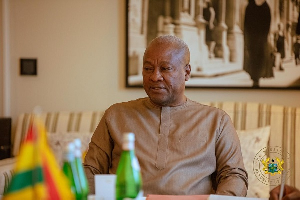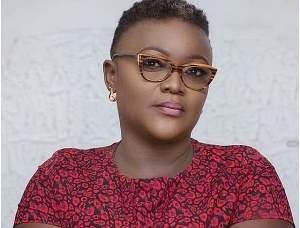Accra, April 11, GNA- Parents, policy makers, educators and health care providers have been called upon to partner and provide adolescents with the tools needed to have healthy and satisfying adolescence and become productive adults.
Nana Oye Lithur, Coordinator of the Commonwealth Human Rights Initiative who made the call on Monday also suggested the provision of a minimum of seven years education for the adolescents who would by then, be able to make responsible choices concerning their reproductive health.
Speaking on "Adolescents Reproductive Rights in Ghana: the International, Regional and National Normative Framework" at a seminar in Accra, Nana Oye said the right to health was considered a socio-economic right under international law. This health right, including reproductive rights, that was initiated at the UN Conference on International Organisations since 1945 and Ghana having ratified, was thus obliged to respect, promote and fulfil it.
However, Nana Oye said Ghana has no express provision guaranteeing reproductive right or the right to health in the 1992 Constitution. She said at present, the provisions used under the Constitutions were the rights to life, human dignity, right to information and non-discrimination, which were not adequate, stressing that comprehensive sexual and reproductive health information and services must be given to the adolescents.
The seminar, organised by the International Federation of Women Lawyers, FIDA-Ghana under the FIDA/African Alliance Project to sensitise the Family Law Students of the Ghana Law School on the legal and policy framework for adolescent reproductive rights in Ghana was funded by the United Nations Population Fund (UNFPA).
Legal training in Ghana as at now does not have a subject that dealt with sexual reproductive rights, which has become a critical emerging health and development issue in international cycles.
Therefore, Mr. Charles Habiah, Coordinator of the FIDA/AYA Project, said the seminar has been designed to expose and give legal literacy on the international and regional norms and standards on Adolescents Sexual Reproductive Health (ASRH) rights and shape the thinking of the students as they graduate as magistrates and judges.
He said they also intended to secure the consent of the Law School to fashion out a compulsory subject in the curricula on ASRH rights. Mrs Doris Mawuse Aglobitse, who spoke on "Gender, Sex and Reproductive Health advised the law students to be gender sensitive in handling issues of women and child maintenance at court. Other topics discussed were the "HIV/AIDS and Adolescents Sexual Reproductive Health in Ghana" and "Violence against Women and Reproductive Rights".
General News of Monday, 11 April 2005
Source: GNA
















